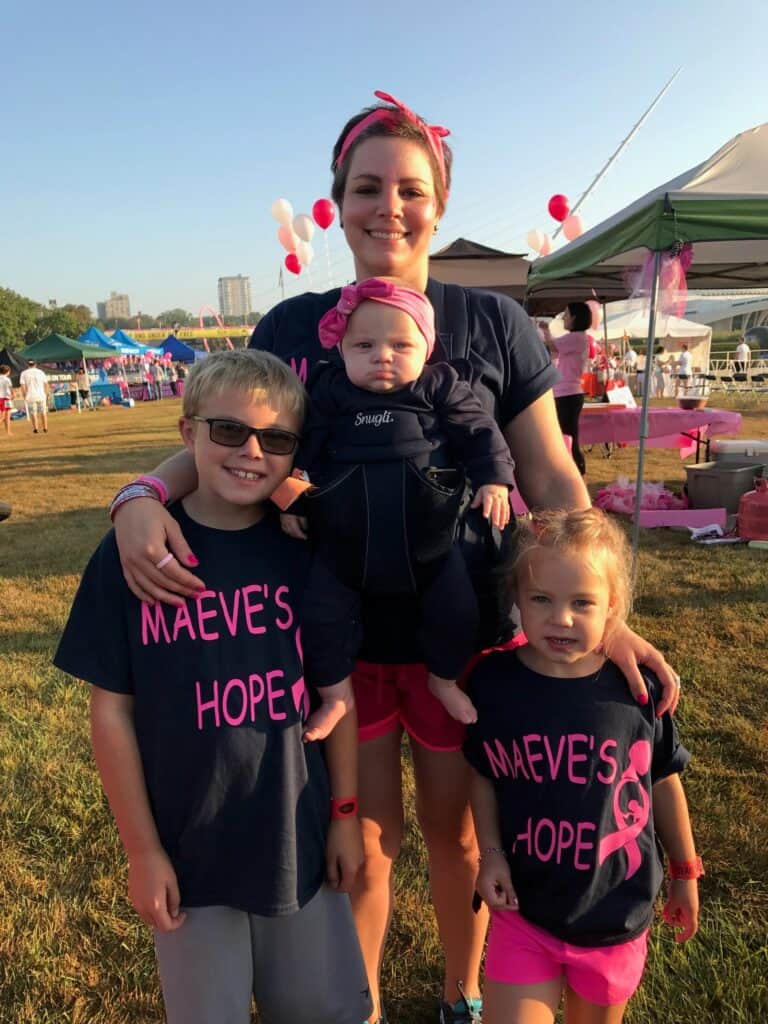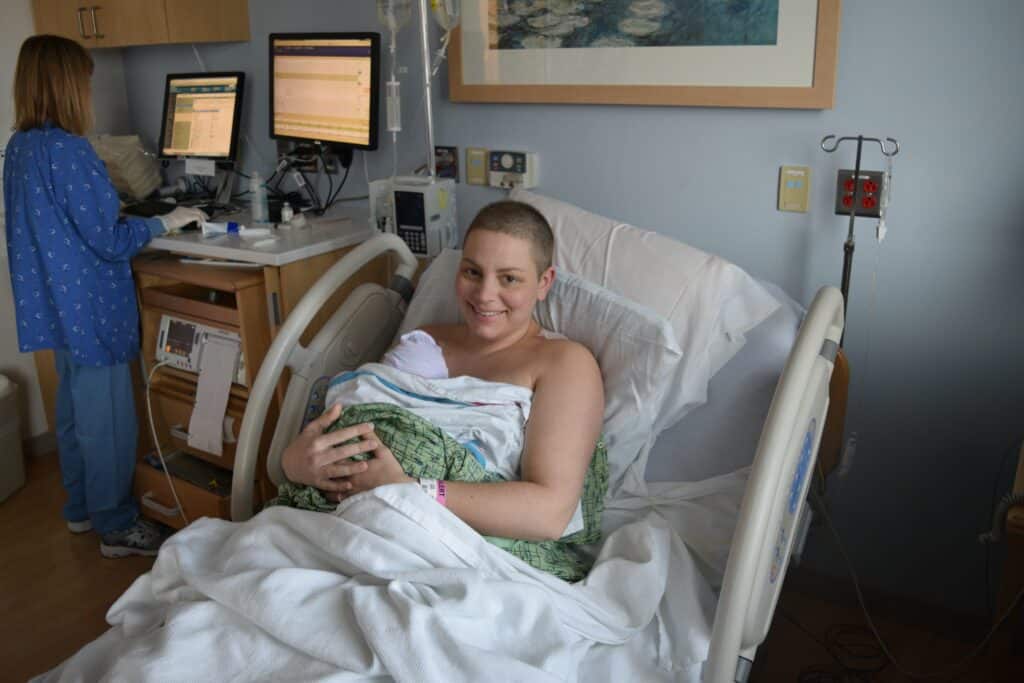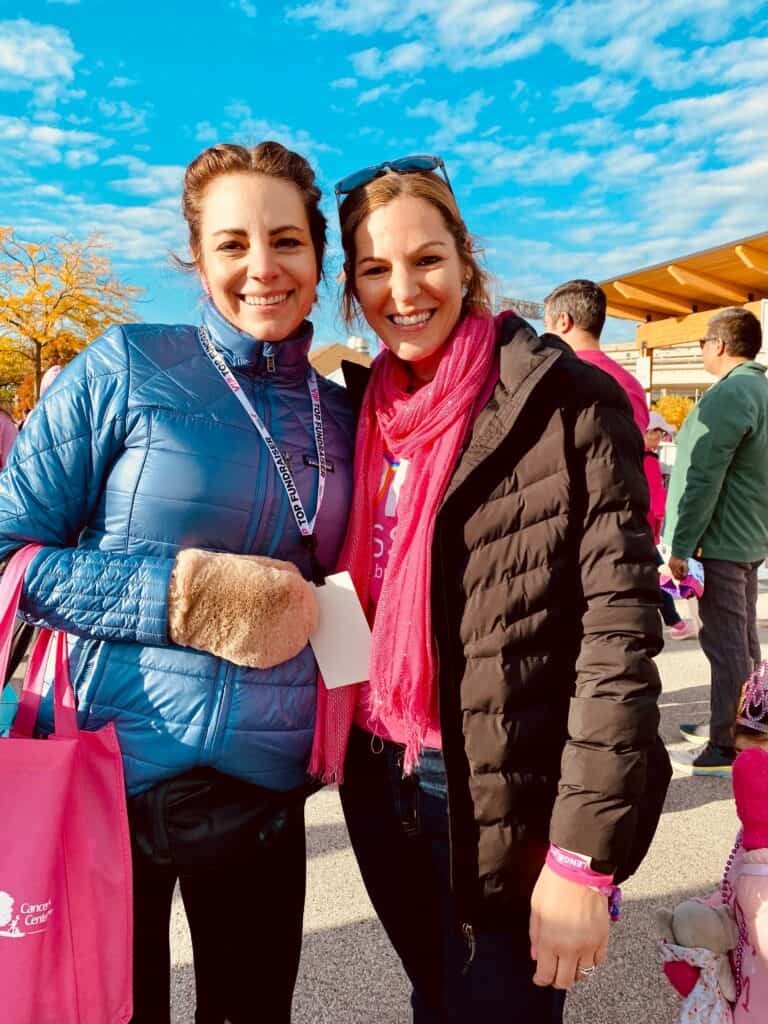
Kate Ratajczak and her husband have three children, ages 14, 9 and 5. In October 2016, Kate learned she had triple negative breast cancer. She was 13 weeks pregnant with her youngest child
Kate was 13 weeks pregnant when she learned she had triple negative breast cancer. She was stunned. “Everything went into tunnel vision. I couldn’t believe this was happening,” she said.
The doctor was very reassuring, but also very matter of fact. He told Kate the baby might not survive, but he also told her that she would have to survive first in order for the baby to have a chance to survive. “I thought, am I going to have to make the decision to sacrifice myself to save my child?” Kate recalled. “I’m in the medical field, but I definitely was not thinking like a medical person at the time. I was pretty sure I was going to die and my baby was going to die, too.”
It was a very frightening time for Kate and her husband. Adding to it was the fact that Kate had no one to talk to who truly understood what she was going through.
When she was 15 weeks pregnant, Kate had a bilateral mastectomy. After several weeks of recovery, she received four rounds of chemotherapy. Four weeks after finishing that, she gave birth to a healthy baby girl.

“I was supposed to continue chemotherapy, but I developed facial cellulitis and then breast cellulitis. It was a kick in the pants. I had a breast infection, but no breasts,” Kate said. She resumed treatment once the infections cleared up.
Kate underwent genetic testing, which revealed she has a BRCA gene mutation. “I kind of spiraled at that point,” she said. “I was so concerned about my family and leaving them, as well as passing this gene on to them.” Kate had a hysterectomy in 2018. “I spend a lot of time at doctor appointments, and there’s a lot of anxiety that comes along with that. I have colonoscopies, dermatologist appointments, pelvic exams. And there’s also the worry of developing pancreatic cancer.”

While Kate’s family was involved in the decisions she made throughout her treatment, she didn’t really have anyone to talk to who had been through the same situation she was going through. “I felt so alone during my diagnosis and treatment,” she said.
That’s why Kate agreed to be a mentor for a women newly diagnosed with breast cancer who was also pregnant. “My nurse navigator called and told me about Alison. She asked if I’d reach out to her and I said yes,” Kate recalled. “I didn’t have anyone to compare my story with. I knew how important it would be for Alison to have someone to talk to, someone who understood what she was going through.”
At their first meeting, Kate and Alison instantly bonded. And for Kate, she found that through offering help to Alison, she was also helping herself. “I was the neutral party,” Kate said. “I wasn’t Alison’s husband or parents or family. I was a friend who knew exactly what Alison needed to hear, and how to approach it.”
Kate and Alison balance one another when life gets difficult. “Our situations were different, but I shared my experiences and it was helpful for Alison. And even now when we talk, it’s productive. We listen to each other. We’re lifelong friends now,” Kate said.
Listen to Kate and Alison share their story.
Statements and opinions expressed are that of the individual and do not express the views or opinions of Susan G. Komen. This information is being provided for educational purposes only and is not to be construed as medical advice. Persons with breast cancer should consult their healthcare provider with specific questions or concerns about their treatment.
Learn more about breast cancer treatment during pregnancy.



